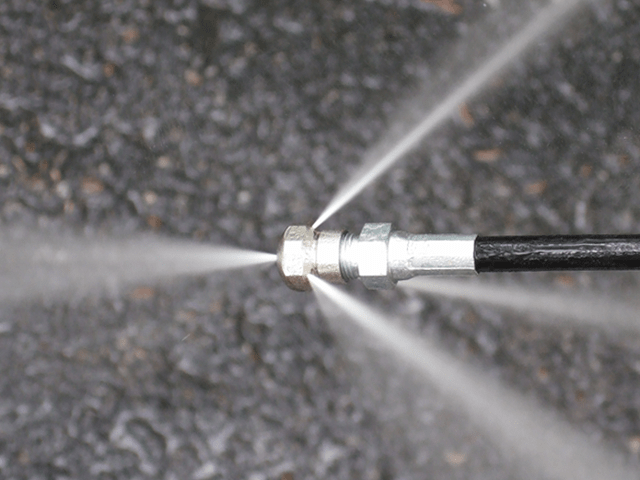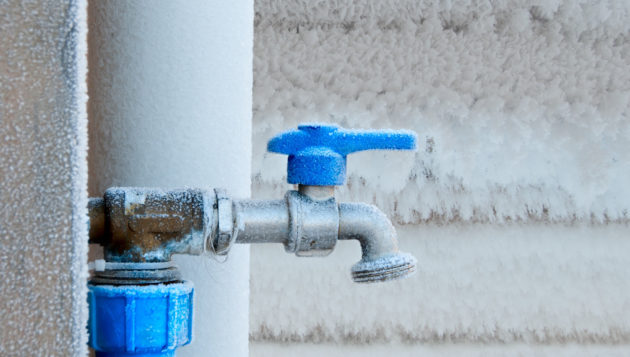Our Recommended Winterizing Strategies: Five Approaches to Guard Pipe Bursts
Our Recommended Winterizing Strategies: Five Approaches to Guard Pipe Bursts
Blog Article
What're your concepts about Winterizing Your Pipes?

All homeowners that live in temperate environments should do their finest to winterize their pipes. Failing to do so can mean disaster like frozen, cracked, or burst pipes.
Turn On the Faucets
When the temperature level declines and also it appears as if the cold temperature level will last, it will certainly help to activate your water both inside your home as well as outdoors. This will maintain the water streaming through your plumbing systems. Additionally, the motion will reduce the freezing procedure. Significantly, there's no need to transform it on full force. You'll end up squandering gallons of water by doing this. Rather, go for about 5 drops per min.
Open Closet Doors Hiding Plumbing
It would certainly be practical to open cupboard doors that are camouflaging your pipelines when it's cold outside. For example, they could be somewhere in your kitchen or restroom. This will permit the warm air from your heater to flow there. Therefore, you stop these subjected pipes from cold. Doing this small technique can keep your pipelines warm and also limit the potentially hazardous end results of freezing temperature levels.
Require Time to Wrap Exposed Piping
One very easy and nifty hack to warm up freezing pipes is to cover them with warm towels. You can cover them first with towels. After safeguarding them in position, you can put boiling water on the towels. Do it gradually to let the towels take in the liquid. You can likewise make use of pre-soaked towels in hot water, just do not neglect to wear protective gloves to secure your hands from the heat.
Try a Hair Clothes Dryer or Heat Gun
When your pipelines are nearly freezing, your trusty hair clothes dryer or warmth weapon is a godsend. If the warm towels do not help remove any clearing up ice in your pipes, bowling hot air straight right into them may aid. Nevertheless, do not use various other items that create direct flames like a blow lantern. This can cause a larger calamity that you can not control. You might end up harmful your pipelines while trying to melt the ice. And in the future, you might also end up melting your residence. Be cautious!
Shut down Water When Pipelines are Frozen
Switch off the major water shutoff immediately if you observe that your pipes are entirely icy or virtually nearing that stage. You will normally discover this in your cellar or utility room near the heating system or the front wall closest to the street. Transform it off as soon as possible to stop further damages.
Do not forget to close external water resources, also, such as your hookup for the yard home. Doing this will stop added water from filling out your plumbing system. With more water, more ice will certainly stack up, which will eventually lead to rupture pipes. If you are unsure regarding the state of your pipes this wintertime, it is best to call an expert plumber for an examination. Taking this positive technique can conserve you hundreds of bucks in repairs.
All home owners that live in warm climates need to do their finest to winterize their pipes. Failing to do so can lead to calamity like icy, split, or burst pipelines. If the hot towels do not help remove any kind of settling ice in your pipes, bowling warm air directly into them may help. Turn off the main water valve quickly if you see that your pipelines are totally icy or practically nearing that stage. With even more water, more ice will certainly pile up, which will at some point lead to rupture pipes.
PREVENT YOUR PIPES FROM FREEZING THIS WINTER
A Leading Cause of Property Damage
When the weather is taking a deep nose dive into the cold dreary days, the risk of your pipes freezing and potentially bursting skyrockets. Unfortunately, during these cold dreary months, burst pipes are the most common denominator for property damage. The pipes that are most at the risk are those that are in areas where it is most cold in your home. For instance, pipes located in interior places such as basements, attics, and your garage. Unfortunately, that doesn’t mean that the pipes running through your cabinets or exterior walls can’t freeze. Good news, however, is that you can do things to help prevent pipes from freezing.
How to Prevent Pipes From Freezing
Once the temperature starts to drop during the winter, you should be taking the proper measures needed to ensure that your pipes stay warm and that there is circulation of water through them. Some steps that experts may recommend could go against your better judgement when it comes to saving water and heat. However, it would go without saying that when expenses are compared, damaged pipes could put a bigger dent in your wallet than a water bill.
What Can I Do?
Keep your garage door closed. This is very important, especially if you have water supply lines running through your garage. Open your kitchen and bathroom cabinets to allow warm air to circulate through them. Allow air circulation throughout your home. Keeping the interior doors open will once again allow the warm air to circulate inside your home. Ensure your thermostat is running the same temperature throughout the night and day. If you plan to be away from home during the cold months, set your temperature no lower than 55° F. This should provide enough heat to keep the pipes warm and prevent any remaining water inside the pipes from freezing. For more of a long-term solution, add insulation to attics, basement, and other crawl spaces around your home. By allowing your faucet to drip, it will alleviate pressure in the system. This is important because the pressure that is created between the blockage and the faucet can potentially cause the pipes to burst. Allowing the faucet to drip will prevent the pressure from building up, therefore keeping the pipes from bursting. Seal any cracks, openings, and crawl spaces around your home to prevent cold air from coming inside. This keeps your pipes-not to mention your home-warmer and less susceptible to issues caused by freezing temperatures. For the pipes in your home that are easily accessible, applying electrical tape to them might prevent them from freezing over. This is a quick fix, as you can apply the tape directly to the pipe. There are two options for heating tapes. One turns on and off by itself when it senses heat is needed. The other type of heating tape needs to be applied when heat is needed and removed when not necessary. If you have exposed pipes in your home, you can check this website to take a look at a few options that would be available at a shop near you.

As an avid reader on How to stop pipes from freezing during the winter, I think sharing that piece of content was beneficial. Are you aware of someone else who is intrigued by the topic? Do not hesitate to promote it. Thanks so much for taking the time to read it.
Affordable? Call now! Report this page